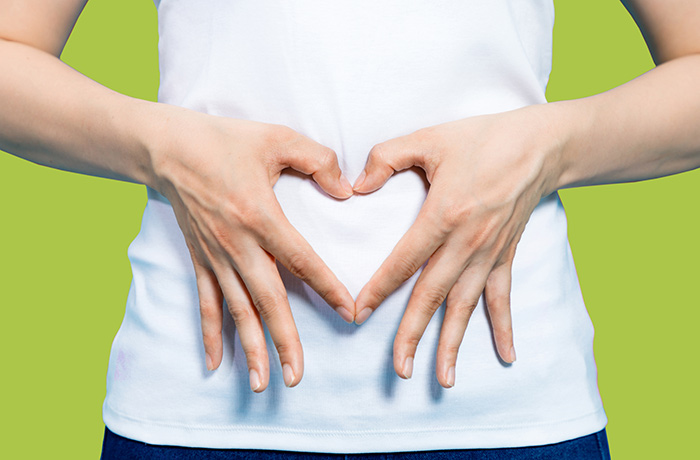How To Improve Your Gut Health
4 min read
A 2021 study by scientists at Stanford Medical School found that within 10 weeks, a diet rich in fermented foods such as kimchi can effectively increase the diversity of intestinal bacteria, which may be beneficial to health. Immune health and inflammation are reduced. According to an August study by Stanford University, people who consume fermented foods such as yogurt, sauerkraut, kimchi, kefir or kombucha will increase the diversity of the gut microbiome every day for 10 weeks. According to other studies, people with higher healthy blood lipid levels have more types of microbiomes and more beneficial bacteria, even if they don’t eat a high-fibre diet. A study found that people who regularly eat yogurt have more lactobacilli (a beneficial gut bacteria) in their intestines, and fewer Enterobacteriaceae (a bacteria related to inflammation).
Some studies have shown that taking probiotics can support a healthy gut microbiota and prevent intestinal inflammation and other intestinal problems. Taking probiotics daily can help improve intestinal health.
Prebiotics are a dietary source of probiotics and may promote the growth of beneficial bacteria in the gut. Prebiotics are indigestible fibres that are fermented in the gut by beneficial bacteria (probiotics) that maintain the balance of the microbiome. Probiotics are rife with live bacteria, which will help keep your gut population populated with mostly good types of microbes.
You can get a good probiotic supplement at your health food store, however, be sure to ask your doctor which strains of cultures are best for you, as everyone’s microbiome is different. Try to buy antibiotic-free meats, and if you need to take antibiotics to treat a virus, be sure to take probiotics every day for the duration of the prescription to replenish your gut bacteria stores.
Eat lots of prebiotics, which are a food source of probiotics that support grow beneficial bacteria in your gut. Yogurt, kefir, fresh sauerkraut, and dietary supplements are good sources of probiotics.
You can also eat many foods, which can actively promote the growth of beneficial bacteria, thereby contributing to your overall health. Foods such as chicory, artichokes, lentils, asparagus, beans, lima, onions, garlic, leeks, bananas, beets and broccoli can improve the protective function of intestinal bacteria and inhibit the development of pathogens. You can also eat foods such as kimchi, kimchi and kefir to get enough live crops to keep your intestines healthy.
Although the quality of these foods may vary, their benefits to the gut microbiota are recognized. Fermented foods such as yogurt, kimchi, sauerkraut and kombucha are also highly regarded for their ability to stimulate the intestines through probiotics. Dairy products such as Greek yogurt and aged cheese are also excellent probiotics.
To help your body produce as many beneficial bacteria as possible, eat more fresh fruits and vegetables and foods rich in fibre. The best foods for gut health are fruits, vegetables, beans, nuts, seeds and whole foods. “Cereals, especially those that are rich in fibre, can help your digestive system function properly. In order to keep your gut healthy, it is important to reuse organic, nutritious and whole foods, not processed or refined unhealthy foods. Intestines. Dao health is related to sugary, highly processed foods.
Certain foods and a healthy lifestyle can naturally improve gut health. Research has shown that a healthy gut can improve mood and immune system function, and support health in other ways.
Besides developing and protecting our immunity, the gut microbiome plays an significant role in overall human health by metabolizing nutrients and medicines, producing important vitamins and minerals, and digesting our food. One of the main links between the gut and the brain is the food we eat and how it is digested by the gut bacteria. By breaking down the food we eat, our intestines absorb nutrients that support our body’s functions.
In this way, prebiotics feed the beneficial gut bacteria, helping them produce important nutrients for the cells of the colon, leading to a healthier digestive system.
 Studies have shown that probiotics can help restore intestinal bacteria to healthy levels, thereby protecting us from inflammation. Probiotic supplements, such as spirulina, may be beneficial, however the ability of bacteria to penetrate the gut intact has yet to be established. Although they are good for your health, they are not a substitute for a balanced diet.
Studies have shown that probiotics can help restore intestinal bacteria to healthy levels, thereby protecting us from inflammation. Probiotic supplements, such as spirulina, may be beneficial, however the ability of bacteria to penetrate the gut intact has yet to be established. Although they are good for your health, they are not a substitute for a balanced diet.
Without supplements, fortified foods, or microbiome testing, you can cultivate a diverse gut microbiome for good gut health. The diversity of your diet creates a healthy and diverse gut flora in your microbiome. Ensuring a diverse and thriving microbiome can not only help your mental health, it can also prevent things like overeating and help regulate your digestive system.
Taking care of intestinal health and maintaining the correct balance of these microorganisms is essential for physical and mental health and immunity. Although some microorganisms are harmful to our health, many of them are very beneficial or even essential for a healthy body.
Eat a Vegetarian Diet Share on Pinterest By following a vegetarian diet, a person can improve their gut health. Research has shown a significant difference between the gut microbiomes of vegetarians and those who eat meat. A vegetarian diet can improve gut health due to its high levels of prebiotic fibre. Choosing a more plant-based diet is more beneficial for the gut, as a diet based on animal meat can promote the development of “bad” bacteria in the gut.
According to a 2021 study published in Cell, eating fermented foods like sauerkraut not only increases the diversity of your gut microbiome, but may also help reduce inflammation. Gilbert notes that it is best to eat fermented foods that are high in fibre.
Sometimes, avoiding certain foods can help restore intestinal balance. Eating slowly instead of swallowing can also help keep your intestines healthy. A diet rich in inflammatory foods, exposure to environmental toxins and stress can promote harmful bacteria in the gut.






